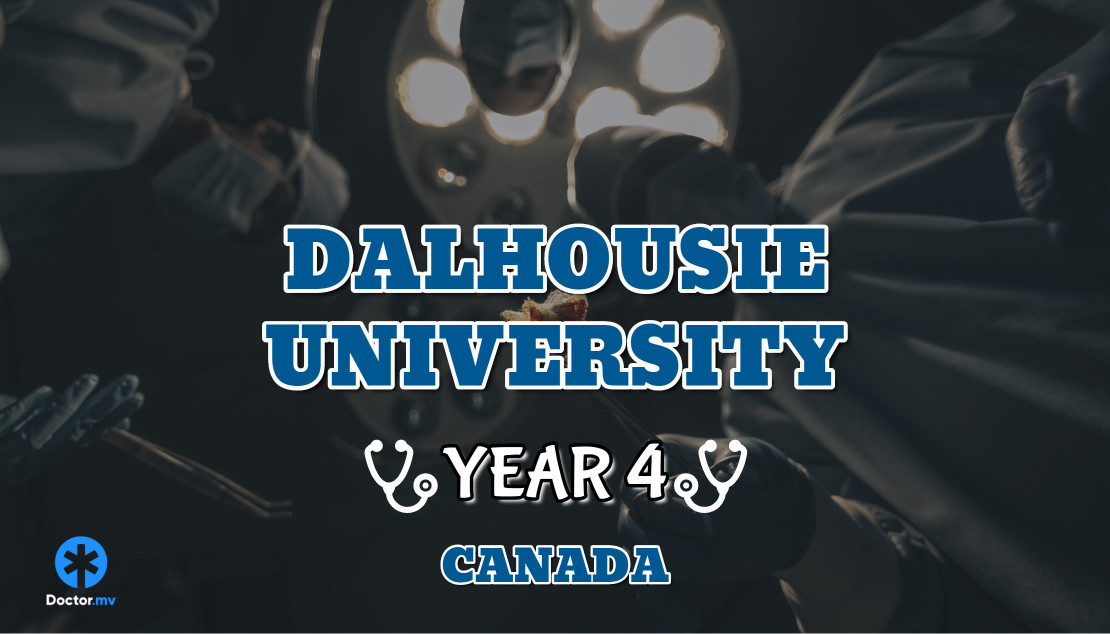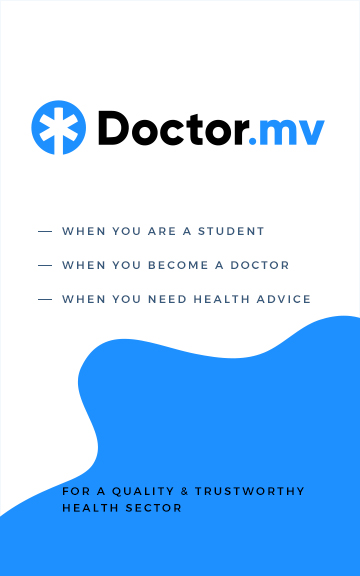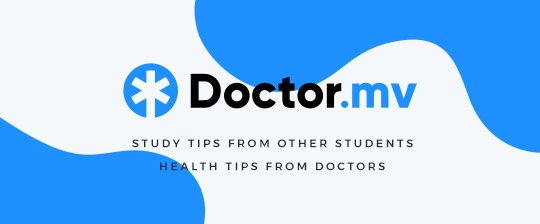I'm AISHATH SAUSAN and this is My Medical Student Life

University
Dalhousie University
Current Year
Fourth
Medical Specialty Interested in
Orthopedics or Adult Gastroenterologist
One Word that Describes You
Nice
Most Intriguing subject in Medical School
Gastroenterology
What was your path to Medical School like?
I completed my O'Levels in Fuvahmulah, and joined CHSE for my A'Levels. I did tutor students for 6 months before I started high school. Upon graduating, I worked in the emergency department of IGMH for over 8 months.
I heard about International Medical University (IMU) in Malaysia through a friend. I applied for the transfer program with the help of Glonet, where you complete 2.5 years in IMU and then transfer to a partner university for the clinical years.
Dalhousie University in Canada was my first choice. I liked the North American system. Moreover, factors such as internship year not being available in Malaysia for international students and the language barrier present with the patients during clinical years, motivated me to transfer to Canada.
What was the biggest difference between your expectations of entering Med School when you were doing A'level, and the actual experience of being there?
I didn't have many expectations to begin with. Plus, I had many friends that were in Medical school and I was working in a hospital. Hence, I had a lot of input from the doctors and my friends.
One thing is that I was told by many that I would not be having a social life and it's going to be hard. This may be true to certain extent and I may have stayed up late studying for a couple of days. Yet, I was still able to have a social life and do things I enjoy doing.
How is your daily routine like?
The clerkship year (3rd year) is when we, for one full year have rotations between different departments. The only break we get is 7 days for Christmas. You are put in a track at the hospital. I started with Internal medicine, and then Family Medicine, followed by Psychiatry. I also did Surgery and Emergency, Obstetrics and Gynecology, and also Pediatrics.
For example, when I did ICU rotation, I woke up at 6 am and be at the hospital by 7 am, but when I did GI I had to be there at 8 am. When I did surgery, it was different. Some days I had to be at the hospital by 5 am.
Moreover, during my on-calls I have to be at the hospital for 24 hours. I would be at the hospital by 5 am, round-up my patients and be at the Operating room by 8 am. Plus, on our academic half-days we would finish the hospital at 4 pm, attend the seminars in the universities before we come back to the hospital again. We would then see patients all night long. Some nights we sleep in the on-call rooms situated inside the hospital.
We are very tired by the time we get home, hence I do most of my studying during the rotation at the hospital. Since, it's a teaching hospital, the residents and the staff teach us a lot while we consult the patients. Whenever I get time I would go to the library and study. Usually I try to sleep before 12 am.
Which experiences in Medical School inspire you?
The fear of falling behind is what inspires me to be better. This career is not a joke.
It is quite a huge responsibility saving lives, and holding accountability for someone's health. When I see the patients during my clerkship, it pushes me to study and learn what I don't know, for them.
In your opinion, what are the top 3 countries to study medicine in?
I did look into UK to pursue Medicine, but then I heard about Malaysia and joined IMU.
I also never considered Australia before, but I wish I went there in my transfer program. Sure, here in Canada the program is excellent. However, last year well into my program, the Canadian government changed the policy for International students looking to pursue postgraduate training here. It is no longer possible for us, unless we become a Canadian citizen.
Name your favorite medical text book.
Step-up to Medicine by Steven S. Agabegi and Eizabeth D. Agabegi.
For Surgery, I would recommend Current Surgical Diagnosis & Treatment by Lawrence W. Way.
Moreover, since I'm studying in Canada, I would suggest Toronto Notes, which helps with the Medicine licensing test in Canada.
What do you believe to be some of the most pressing health issues today? Why?
The other day I was reading about the legalization of Marijuana here in Canada. It is now readily available for recreational use. The young children growing up view it as something normal. It is now the new social drinking.
In my opinion, it is a huge burden for the health care system. People don't consider it to be so. Especially on the mental health sector. Mental health diseases are really prevalent here, and one of the main reasons is Marijuana.
What is the most effective way to study in Medical School?
Seeing is learning. Instead of sitting in a classroom and reading books, I think if you see the patient and read around that case, then you would retain more.
Plus, I refer to a lot of papers and journals. I don't use a lot of textbooks anymore. After graduating, when I'm managing the patients, the best way to learn is reading up on the latest studies and research.
Do you need High grades to become a decent doctor?
No, you don't need to have high grades. Yet you need to have a good clinical knowledge to be a decent doctor.
The most important thing is to have effective communication skills. Especially in the Maldives not many people do this. Maybe now we are headed towards the holistic approach and a more patient centralized care system. The doctors are there to provide them with the correct and adequate information so that the patient can make a well-informed decision.
To sum it up, you need good clinical knowledge to become a decent doctor, but effective communication skills to become a great doctor.
Finally, what is the one tip/advice you want to give to our readers?
You are going to hear a lot of things regarding Medical school, most commonly why you shouldn't join one. Don't listen to them. But I'm not telling you to be ignorant and have false expectations.
Be aware and just go for it!
The My Medical Student Life series was created for the sole purpose of helping medical students and aspiring doctors on their journey to become a successful Maldivian Healthcare Professional. Have a suggestion, idea or question? Email us.



Leave a comment
0 Comments